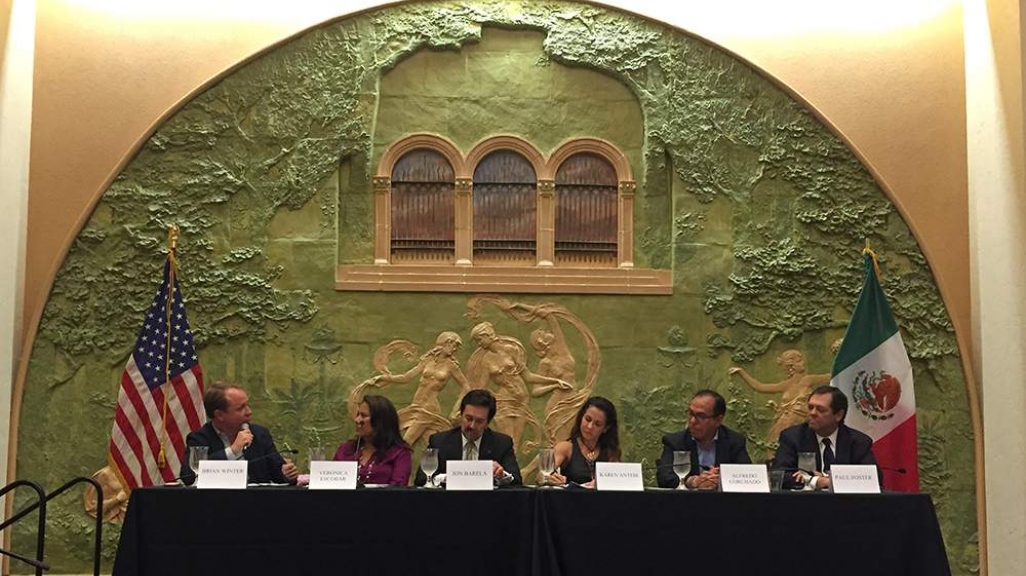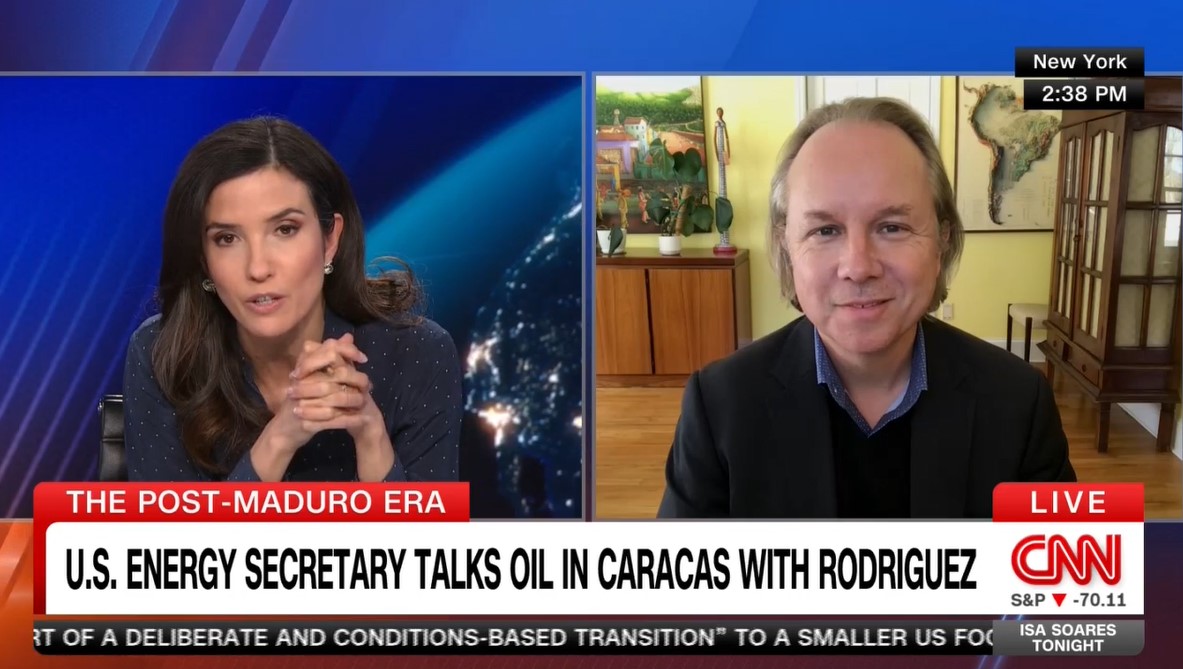Summary: Washington and the Future of the U.S.-Mexico Border
Summary: Washington and the Future of the U.S.-Mexico Border
“The closer you get to the border itself, the better Mexicans and Americans understand each other,” said AQ’s Brian Winter at the El Paso event.
Speakers:
- Karen Antebi, Economic Counselor, Trade and NAFTA Office, Embassy of Mexico
- Jon Barela, CEO, The Borderplex Alliance
- Alfredo Corchado, Award-winning journalist, author, and Mexico Bureau Chief of The Dallas Morning News
- Veronica Escobar, El Paso County Judge
- Paul Foster, Founder and former Executive Chairman, Western Refining, Inc.
- Brian Winter, Editor-in-Chief, Americas Quarterly; Vice President of Policy, Americas Society/Council of the Americas (moderator)
Donald Trump’s promises to crack down on immigration, renegotiate the North American Free Trade Agreement, and extend the southern border wall have put U.S.-Mexico relations on their rockiest footing in decades. But promises and policies are two different things. To understand how cross-border ties are actually changing under the new administration, Americas Quarterly (AQ) went to El Paso, Texas to talk to some people for whom the binational relationship is just a fact of life.
On June 8, AQ brought together some of the border region’s most thoughtful voices to discuss the current state of U.S.-Mexico relations and to celebrate the launch of the magazine’s most recent print edition, “Indivisible.” The panel event was held in partnership with the El Paso Community Foundation and the U.S.-Mexico Border Philanthropy Partnership at the Anson Mills Building in downtown El Paso, and sought to gather on-the-ground perspectives on what relations on the border are really like.
“I know one truism of the U.S.-Mexico relationship is that the closer you get to the border itself, the better Mexicans and Americans understand each other,” said Brian Winter, AQ’s editor-in-chief. That spirit was on display as speakers and attendees discussed everything from the politics of immigration to the future of the North American Free Trade Agreement (NAFTA) and beyond. Here are a few highlights from AQ’s trip to one of the focal points of the United States’ and Mexico’s cross-border relationship.
Border Misconceptions
The city of El Paso sits on the long arm of western Texas, just across the riverbed from Ciudad Juárez in northern Mexico. Together, the two cities form what is referred to locally as the “borderplex,” a place that many residents believe remains a mystery to those outside.
“The biggest misconception in my opinion is that the rest of the country views us as a violent, lawless frontier,” said Jon Barela, CEO of The Borderplex Alliance. Not only is El Paso not violent, but it is one of the safest cities of its size, the panelists said. They also cited low unemployment rates, negative net migration of Mexicans into the United States, and an already existing border wall as information that often escapes people in the rest of the United States.
Even having access to that information is no guarantee that it will be put to good use. Panelists said that media and politicians too often push facts aside when it comes to the border, and voiced their frustrations with the challenge of fighting back against misinformation. “You can present the facts directly to politicians and other folks from other parts of the country and it won’t matter,” said Veronica Escobar, El Paso’s county judge.
The consequences can fall heavily on border cities like El Paso. Barela, who works with businesses in the region, said that misinformation can manifest into national policies that are destructive to the border economy; perceptions that El Paso and other cities along the border are dangerous can deter businesses from setting up shop there.
The Political Piñata
Residents in El Paso and Ciudad Juárez often feel stuck in the middle of the politics of the border. Panelist and award-winning journalist Alfredo Corchado compared border cities and states to political piñatas—“it’s easy to hit them and there’s no real punch back,” he said.
For Paul Foster, founder and former executive chairman of Western Refining, Inc., politicians in the United States shoulder much of the blame for fear and uncertainty surrounding the border. “I think they actually want people to believe that if you create a wall high enough people in the United States will quit taking drugs, and it’s just not a realistic argument,” he said.
Not surprisingly, it is those politicians who are from the border who are able to break through the noise. The panelists lauded Democratic Representative Beto O’Rourke, one of AQ’s Top 5 Border Ambassadors, and his Republican colleague Representative Will Hurd, for their efforts to encourage bipartisan policies that would benefit all those living on and around the border.
Watch a Mexico Border tour with Alfredo Corchado:









